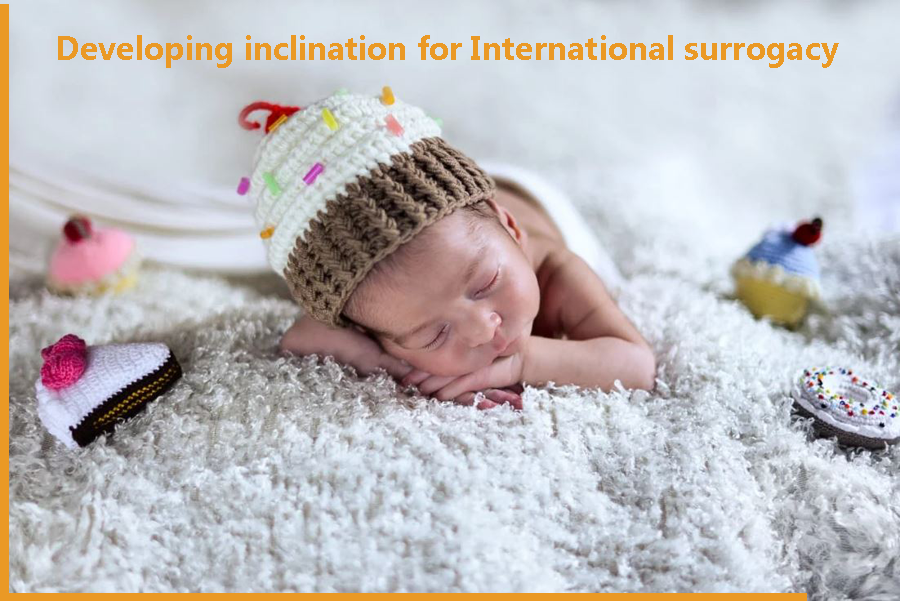Why are intended parents in the UK opting for alternatives like Georgia?
Surrogacy in the UK is long known to be the most preferred choice for many intended parents across the world. Still, in recent times, an increasing number of individuals from the United Kingdom have been looking abroad to fulfil their dreams of parenthood through surrogacy. That said, countries like Ukraine and Georgia have come up as potential destinations for intended parents looking for surrogacy services. Also, this shift is impacted by a combination of legal, monetary, and other considerations. This post investigates the reasons behind this developing inclination for international surrogacy in the UK.
Developing inclination for International surrogacy in the UK
Rising complications within the UK legal system
The legal system of the UK is strict with all the guidelines and instructions adopted by the local government. Moreover, one of the key reasons British citizens see overseas for surrogacy is the complex legal scene within the UK. That said, surrogacy laws within the UK are considered by many to be prohibitive and full of bureaucratic challenges. For example, the surrogate is the legal mother of the child until the intended parents apply for and are allowed a parental order, which can be a long and questionable process.
In comparison to that, nations like Georgia offer a legal process. In Georgia, for example, intended parents can be recognized as the legal guardians from the moment of birth, bypassing the need for adoption processes or post-birth legal methods. Also, this legal certainty could be a significant draw for UK citizens. This is one of the reasons why most of them look for surrogacy in neighbouring countries like Georgia.
Higher cost of surrogacy services

On the other hand, Georgia offers surrogacy services at a fraction of the cost. The lower cost of living, reasonable healthcare, and competitive cost of surrogacy services in these nations make them appealing choices for many. The more reasonable prices don’t fundamentally compromise the quality of medical care, with many clinics offering state-of-the-art fertility medications.
The struggle with access to surrogates
The role of a surrogate in the surrogacy program is primary. Also, finding a surrogate within the UK can be challenging due to legal restrictions on advertisements for surrogates and compensating them past medical costs. Also, this situation regularly comes about in long waiting periods for appropriate surrogates. In comparison, Georgia has more adaptable controls concerning surrogacy programs, including the registration of surrogates. This adaptability, coupled with proficient agencies that encourage the matching process, makes it less demanding for intended parents to locate a surrogate, altogether lessening waiting times.
The importance of high-quality medical care
Nothing can overpower the importance of the right and top-quality medical care. Moreover, Georgia is known for their strict guidelines of medical care within the field of reproductive innovations. Clinics in these nations frequently brag about state-of-the-art agencies and are staffed by experienced and globally prepared fertility experts. Besides, these nations offer a wide range of fertility treatments and support services, guaranteeing that intended parents get comprehensive care all through the surrogacy journey.
While you may have to research properly to find the right clinic, the facilities and the care are surely going to be top-notch.
The role of privacy and protection of rights
Privacy is a matter of concern for any person indulging in a surrogacy program. That said, for many intended parents, the safety and privacy offered by international surrogacy are engaging. Also, going overseas allows people to experience the surrogacy process with an open eye and, in a few cases, beyond the disgrace that can still be related to surrogacy in certain communities. Countries like Georgia are usual to managing with international clients and are delicate to these safety concerns. Also, they offer top-of-the-line surrogacy services that respect the privacy of all parties included.
Higher success rates than any other country
The success rates of surrogacy programs in Georgia also contribute to their increasing popularity. Also, the expertise of fertility clinics, combined with progressed medical innovations, leads to higher success rates for surrogacy strategies. Also, this success could be a basic figure for many intended parents who have regularly confronted a long time of fertility battles and see surrogacy as their best chance to have a biological child.
Legal Acknowledgment in the UK

Whereas this process can be complex, the expanding nature of the UK legal framework with international surrogacy has made it to some degree smoother over time. On the other side, legal firms specializing in surrogacy can help guardians through this process, giving them fundamental legal support to ensure that their parental rights are recognized within the UK.
Increasing Social Acceptance
We must also mention that the social acknowledgment and understanding of surrogacy as a legal path to parenthood in nations like Georgia play a critical part. Also, the welcoming state of mind towards international intended parents and the respect for their surrogacy journey contribute to a positive and strong environment. This way, it makes the involvement less upsetting and more satisfying for everybody included.
Final words
It’s not easy to seek surrogacy in another country. Yet, given the strict legalities and other aspects, most of the intended parents in the UK are going international for their surrogacy aspirations. Also, for many within the UK, nations like Ukraine and Georgia offer a more available, cost-effective, and legally clear way to parenthood.
Also, the combination of high-quality medical care, success rates, and steady legal systems in these nations gives a compelling choice to the prohibitive process of surrogacy within the UK. As the scene of international surrogacy proceeds to advance, the drift of looking for surrogacy services overseas will likely proceed to develop. At the same time, it will offer trust and a way to parenthood for many more people and couples.


